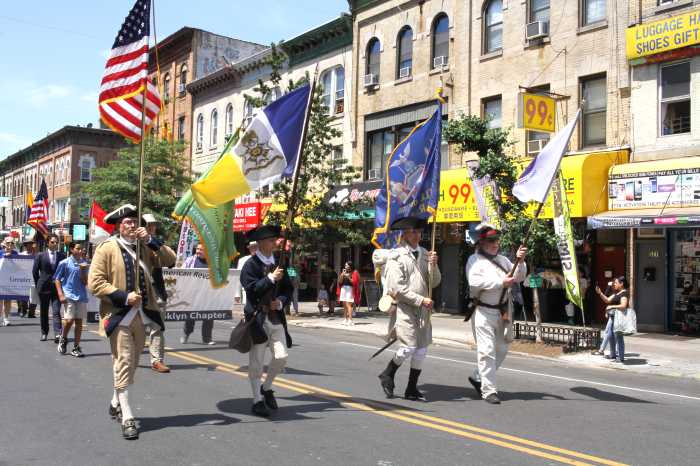The Colorado Court of Appeals ruled on January 26 that Masterpiece Cakeshop (a Denver-area bakery) and its proprietor, Jack Phillips, violated the Colorado Anti-Discrimination Act by refusing an order for a custom-designed cake from Autumn Scardina, a transgender woman, because she wanted to use the cake for a celebration of both her birthday and her gender transition. Masterpiece claimed a First Amendment right to decline the order because of its owner’s Christian religious views about gender and his refusal to express support or approval for gender transition.
In the earlier case, Phillips refused to produce a wedding cake for Charlie Craig and David Mullins in 2012 because of his religious objections to same-sex marriage. He believed that making a custom-designed wedding cake for them would communicate approval for their marriage, which violated his religious beliefs. Phillips lost before the Colorado Civil Rights Commission and the Court of Appeals.
When Scardina called Masterpiece on June 26, 2017, the staff was busy because of the publicity about the Supreme Court’s decision announced that morning. The Supreme Court had reversed the Colorado Court of Appeals ruling, finding that the Colorado Civil Rights Commission had shown hostility to Phillips’ religious views during its hearing on the complaint by Craig and Mullins, thus failing to provide a “neutral forum” and requiring that the state court ruling against him be reversed. However, the Supreme Court did not rule on whether Phillips and his business generally enjoyed a First Amendment right to refuse the men’s cake order.
Scardina got Phillips’ daughter Debra on the phone, asking if she could order a cake with a pink interior and blue icing. After Debra agreed to take the order, Scardina informed her that the cake had a two-fold purpose: to celebrate her birthday and to celebrate her male-to-female gender transition. Scardina was then informed that Masterpiece could not take the order.
Scardina filed a complaint with the Colorado Commission, which found probable cause to believe that Masterpiece violated the law. The Commission ordered the parties to submit to mediation, which did not result in an agreement. The Commission filed a notice and complaint against Masterpiece, but before a hearing could be held, Masterpiece sued the Commission in federal court. Then Masterpiece, Phillips, and the Commission reached a settlement under which Masterpiece withdrew the federal lawsuit and the Commission agreed to dismiss its complaint against Masterpiece. Masterpiece and Phillips were not required to concede that they had violated the statute.
Scardina was not a party to this agreement and did not agree with it, filing her own lawsuit in the Denver District Court against Masterpiece and Phillips, as the statute allows her to do. Masterpiece offered to pay her $500.01, one cent above the statutory maximum fine for this kind of case, either by paying the money into the court or giving a certified check payable to her through her lawyer, but the court refused to accept the money and so did Scardina. There was a trial in Denver District Court, which ruled in Scardina’s favor. Masterpiece appealed, repeating the First Amendment free exercise and free speech arguments from its earlier case, with the same result: The Colorado Court of Appeals’ three-judge panel unanimously ruled for Scardina in an opinion by Judge Timothy Schutz.
After disposing of various procedural objections raised by Masterpiece, which is represented by lawyers associated with Alliance Defending Freedom (ADF), the court found that the refusal of the cake order was “because of Scardina’s transgender status.” Trial Judge A. Bruce Jones found that at first Debra agreed to make the cake as described by Scardina, “but then retracted the commitment once Scardina told her what the cake was for.” Jack Phillips testified that he would make the same custom pink and blue cake for other customers, if he did not know why the cake was being used and, “most critically,” wrote Judge Schutz, “Phillips acknowledged that a pink cake with blue frosting ‘has no intrinsic meaning and does not express any message.’” But the order was refused after Scardina communicated that the cake was intended to celebrate her gender transition.
Phillips argued that the order was declined not because Scardina is transgender but because of “the message conveyed by its intended use to celebrate such status.” But, citing the Supreme Court’s earlier decision, Judge Schutz observed that “the Supreme Court has rejected efforts to differentiate between discrimination based on a person’s status and discrimination based on conduct that is inextricably intertwined with such status.”
The court rejected Phillips’ argument that Colorado applies the anti-discrimination law using an “offensiveness rule” that allows bakers to decline to create messages that they find offensive, citing a stunt that had been pulled by William Jack, who, responding to publicity about the earlier case, had gone to several bakers seeking cakes decorated with messages condemning same-sex marriages with Biblical verses and images, but had been refused by those bakers, who found Jack’s intended message to be offensive. Jack filed complaints with the Commission, which found that the bakeries had not discriminated based on Jack’s religion “but instead refused to create cakes for anyone, regardless of creed, where a customer requests derogatory language or imagery.”
The Colorado court concluded that “the outcomes in Jack’s cases were not due to whether the proprietor or the Commission viewed the message as objectionable based on its religious content but, rather, because the cakes required the bakers to create a message that amounted to compelled speech.”
In this case, Judge Schutz pointed out, Scardina did not ask for a cake that included Biblical texts, just “a pink cake with blue frosting with no verse or imagery.” In light of Phillips’ concession at the trial that there is no inherent meaning or expressive message associated with such a cake, it could not fall within an alleged “offensiveness rule” exception, “even if we assume, for the sake of argument, that such an exception exists.”
The court found that making the cake that Scardina wished to order was not “inherently expressive” activity, detracting from Phillips’ free speech argument. Would anybody who saw a cake with blue icing, knowing it was produced by Masterpiece Cakeshop, interpret that cake as expressing any message whatsoever? Masterpiece called a witness at the trial and asked what message he would derive from a pink cake with blue icing. Nothing, he said, unless he was informed that it was ordered by a person celebrating a male-to-female gender transition. From this, Phillips argued that the cake “may be perceived as conveying information.” But, said the court, “the information is not derived from any artistic details or message created by the baker. Rather, the message in that context would be generated by the observer based on their understanding of the purpose of the celebration, knowing the celebrant’s transgender status, and seeking the conduct of the persons gathered for the occasion.” Thus, the court concluded, “the message would not be attributable” to the baker.
Turning to the free exercise of religion argument, the court found that Colorado’s anti-discrimination law is a religiously-neutral law of general application. Under Supreme Court precedents, such a law may be applied even though it incidentally burdens free exercise, so long as the state had a legitimate governmental interest for the law. In this case, the court considered that Colorado has a compelling interest in preventing discrimination by businesses providing goods and services to the public.
Phillips argued that because of his free speech claim, the court should put a greater burden on the state to justify this alleged imposition on his religious beliefs, but the court reminded him that it had already determined that his free speech rights were not involved here. The court also rejected Phillips’ attempt to equate this case to the earlier case as an instance of hostility to religion by the Commission. The Commission’s conduct is not implicated in this lawsuit at all, because it was filed by Scardina after the Commission settled her discrimination claim in a way unsatisfactory to her, and Phillips is appealing a decision by the trial court. The commission, unlike in the prior case, is not a party to this litigation.
“We do not discern any suggestions of hostility in the [trial] court’s statements,” wrote Schutz. “The trial court gave all parties the benefit of its careful attention to the evidence and arguments they presented, and the court rendered a thorough order that dispassionately explained the reasons for its rulings. In short, these proceedings were not marked by any hostility toward Masterpiece or Phillips, or by a desire to punish or target them based on their religious views.”
This is, of course, just one stage in the litigation. Alliance Defending Freedom has an agenda in these sorts of cases, which is to get the Supreme Court to overrule Employment Division v. Smith, a 1990 ruling in which the court held that a person’s religious beliefs do not give them a right to refuse to comply with neutral laws of general application that incidentally burden those beliefs, in the absence of proof that the law was intended to burden religious beliefs. A majority of the justices have in recent years signaled their unhappiness with the Smith rule, but as of yet the Supreme Court has backed away from attempts to overrule it. Perhaps this case will provide a vehicle for them to do so.
Autumn Scardina is represented by the law firms of Fennemore Craig, P.C. and King & Greisen LLP, both of Denver. The case drew amicus briefs in support of Scardina’s lawsuit from the Colorado Hispanic and LGBT Bar Associations, the Colorado Women’s Bar Association, and in support of Masterpiece by now-former Arizona Attorney General Mark Brnovich.


































